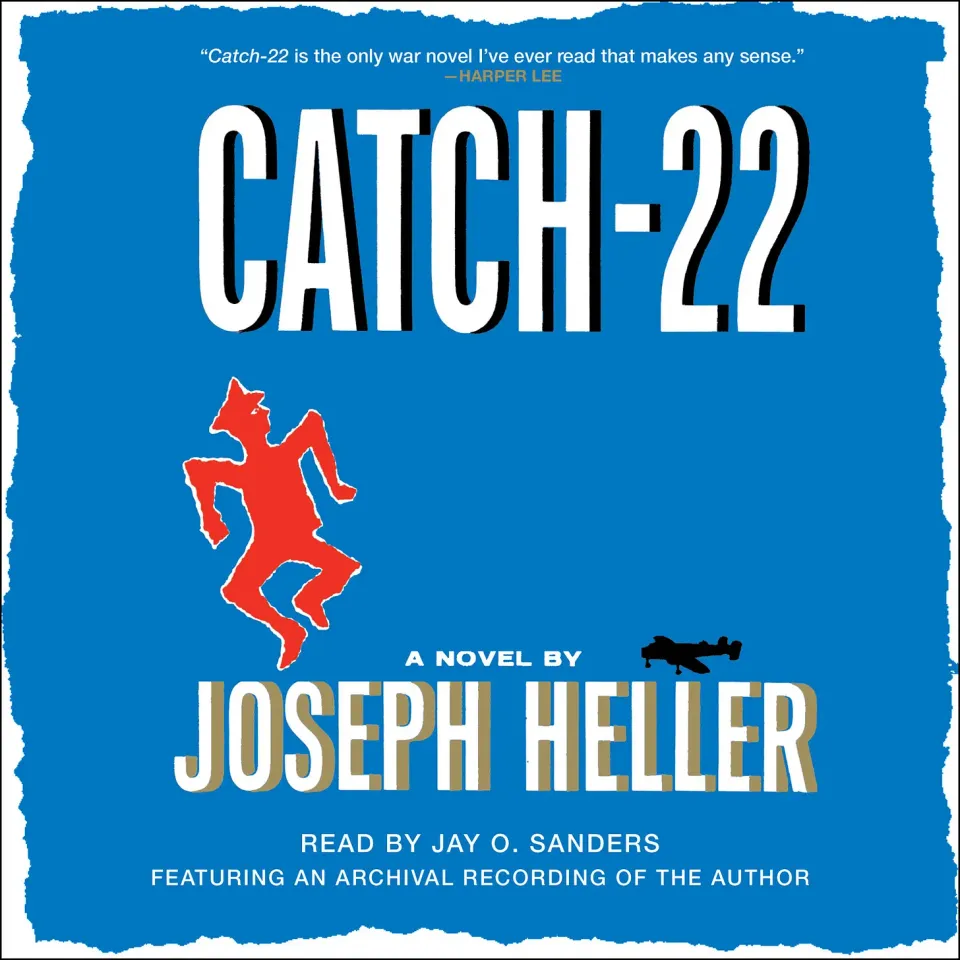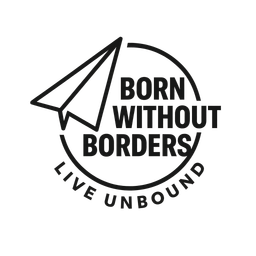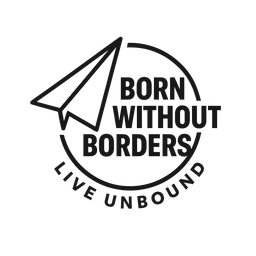Is Catch-22 a Universal Truth?

The following article was inspired by Nishant Jain's comment on "Which single line from fiction do you think contains the most truth?"
Maybe the buildup to this line is equally important, but Catch-22 is full of great truths, and this is one of them -
"So?" Yossarian was puzzled by Doc Daneeka's inability to comprehend. "Don't you see what that means? Now you can take me off combat duty and send me home. They're not going to send a crazy man out to be killed, are they?"
"Who else will go?"
When I think about quotes that contain the most truth, I think about quotes with universal truths.
But how do you figure out what is universally true? As I described in my article "How to Understand Culture & WEIRD People," you can use the hierarchical framework created by Steven J. Heine and Ara Norenzayan.
- Nonuniversal (cultural invention) = Cognitive tool not found in all cultures. For example, an abacus is a calculation tool used in some parts of the Middle East and Asia. Users tend to favour the odd-even distinction, think in base units of five, and make a particular pattern of errors not seen in non-abacus users.
- Existential universal = Cognitive tool found in all cultures but serves different functions in different cultures. For example, Westerners tend to find experiences with success to be motivating and experiences with failure to be demotivating. In contact, East Asians tend to show the opposite pattern, whereby they work harder after failures than after successes.
- Functional universal = Cognitive tool serves the same function in all cultures but is present in different degrees. For example, one large-scale investigation explored whether people from various subsistence societies around the world tended to punish those who acted unfairly, even if that punishment was costly to the individual. Among the Tsimane of Bolivia, participants spent up to 28% of their earnings to punish others who were unfair. In contrast, among the Gusii of Kenya, participants spent more than 90% of their earnings. Then there's me; I don't think I'd spend any of my earnings to punish anyone—to rehabilitate and teach is a different story.
- Accessibility universal = Cognitive tool equally accessible in, and serves the same purpose across, all cultures. For example, social facilitation—the tendency for individuals to do better at well-learned tasks and worse at poorly learned ones when in the presence of others—has been shown to occur in insects and humans.
See “What is Culture, Really? Why WEIRD Psychology Doesn't Explain the World” for references to the studies.

Nishant Jain mentions, "Catch 22 is one of the great existentialist novels everyone should read." I'd also argue the idea of Catch-22 is an existential universal.
But what is Catch-22?
"A catch-22 is a paradoxical situation from which an individual cannot escape because of contradictory rules or limitations. The term was coined by Joseph Heller, who used it in his 1961 novel Catch-22.
— theidioms.com
It's one of my favourite phrases to teach my English students because it's a term that doesn't exist in every language, but everyone has experienced it.
In my article “Language, the Ultimate Psychedelic,” I explain once you have a word for a feeling, colour, smell, taste, sound, or idea, you can distinguish it better. These words give you that eureka moment, like when people learn the word schadenfreude for the first time.
"It's like when you find your best friend passed out in a rosebush with an empty bottle of Aguardiente in his hand after spending a night out with the wonderful Columbians you just met… I'm getting too detailed here. It's a pleasure you feel from someone else's misfortune."
"Oh! That’s schadenfreude? Yeah, I know schadenfreude."
For example, some people might relate the word to a phrase in their language.
- The French term "joie maligne" describes a similar feeling of malicious joy derived from others' misfortune.
- 幸災楽禍" (kou-sai-raku-ka) in Japanese represents a similar concept, referring to finding pleasure in others' misfortune.
- The Russian term "злорадство" (zlorádstvo) refers to malicious pleasure derived from others' suffering.
Do you know any others? Let me know in the comments.
The same goes for Catch-22.
- French has "Cercle vicieux" or "chose impossible," capturing the idea of a vicious circle or an impossible situation.
- German has "Teufelskreis" or "devil's circle," referring to a situation where the solution to a problem creates a new problem, leading to an unending cycle.
- The Russian phrase "Замкнутый круг" translates to "vicious circle."
- Japanese "逆説" refers to a paradox or a contradictory statement.
- The Italian phrase "regole contraddittorie" translates to "contradictory rules," conveying the sense of being trapped by conflicting conditions.
The fact that the meaning of Catch-22 exists in other languages supports my claim of its being universal. Now, I don't have the resources to conduct studies to prove my following claims, but I'm throwing them out there for discussion.
I can't think of a single paradoxical situation reflecting Catch-22 that functions as an accessibility universal or functional universal because societal and psychological paradoxes always serve different functions depending on the culture.
If you can think of one, please let me know in the comments.
Paradoxes themselves aren't inherently existential, as they're just logical or conceptual puzzles that involve contradictory or counterintuitive elements. For example:
The Unexpected Hanging Paradox
A judge tells a condemned prisoner that he will be hanged at noon on one weekday the following week but that the execution will surprise the prisoner. The prisoner deduces that he will never be hanged, as any weekday would be an expected day for the execution. However, the execution does indeed occur unexpectedly at noon on one of the weekdays.
The logic isn't inherently existential, but the meanings of “prisoners” and “executions” are.
The Barber Paradox
In a town, there is a barber who shaves all the men who do not shave themselves and only those men. The question is, does the barber shave himself?
If the barber shaves himself, then according to the rule, he should not shave himself. But if he doesn't shave himself, then he should shave himself according to the rule.
Again, the logic isn't inherently existential, but since some cultures don't have barbers, it doesn't warrant a discussion related to universal truths.
However, societal and psychological paradoxes are existential in nature. For example:
The "Freedom vs. Security" paradox.
This paradox revolves around the tension between two fundamental human desires: the desire for freedom and autonomy and the desire for security and safety. On the one hand, people yearn for the freedom to make choices, pursue their goals, and express themselves without undue constraints. On the other hand, individuals also seek safety, stability, and protection from potential harm or risks.
The paradox arises because too much freedom can lead to chaos and lack of order, while excessive security measures can restrict personal liberties. Striking the right balance between these two desires is challenging. If a society emphasizes too much freedom, it might struggle with issues like crime, social unrest, or exploitation. Conversely, if a society focuses too much on security, it might face issues related to surveillance, limited civil liberties, and a lack of individual expression.
This paradox is universal because it reflects fundamental human values across cultures, but obviously, this tension functions differently depending on the culture, society, and group.
Other examples of paradoxes that function as existential universals are
Trust Paradox: People across cultures may encounter a paradox where they must trust others to build relationships. However, they are also cautious about trusting others due to the risk of betrayal or deceit.
Time Management Paradox: Balancing work, leisure, and personal responsibilities is a universal challenge. People often feel they need more time for relaxation but feel pressured to work more to achieve their goals.
Communication Paradox: Effective communication is essential in all cultures, but individuals might hesitate to communicate openly due to fear of misinterpretation or conflicts. Simultaneously, a lack of open communication can lead to misunderstandings and disputes.
Innovation and Tradition Paradox: Cultures value both innovation and tradition. People often face a paradox where they want to embrace new ideas and progress but also want to preserve their cultural heritage and traditions.
To understand how trust, time, communication, and tradition vary from culture to culture, check out "Decoding Global Business: Understand Cultural Differences for Collaboration."

Non-Universal Paradoxical situations
Credit History Dilemma: People often face a Catch-22 when applying for credit. They need a credit history to qualify for loans or credit cards, but they can't establish a credit history without being granted credit in the first place.
If you hate this paradox, leave North America. That's what I did, and it worked wonders.
Healthcare Access: Some individuals face a paradox where they need health insurance to access medical care, but they also need access to medical care to address health issues that might hinder them from obtaining insurance.
Again, it's not so much of an issue if you don't have a sickeningly greedy healthcare system.
Job Experience Paradox: Many job seekers encounter a situation where they need experience to get a job, but they need a job to gain experience.
Again, it is not universal, as proven by nepotism, celebrities who become politicians, trust-fund kids, and other stuff I hate but wouldn't say no to.
Can you think of some more? Let me know in the comments.
If you believe in research and writing that break down borders, foster cross-cultural understanding, and inspire people to live unbound, consider becoming a paid subscriber to Born Without Borders.
All my work is published on Ghost, a decentralized, non-profit, and carbon-neutral platform—free from VC funding and the grip of technofeudal lords.
I don’t use algorithms to hijack your attention.
My work can only exist if you share and support it.
- Become a Paid Member: Get access to all exclusive content and potentially included access to certain courses/workshops and directly support this work for just $5/ month or $50 / year.
- Become a Founding Member: For those who want to make sure I stay off the platforms causing mental illness, polarization, and a technofeudal shit show. Your deeper support makes all the difference for $30/ month or $300 / year.



Member discussion